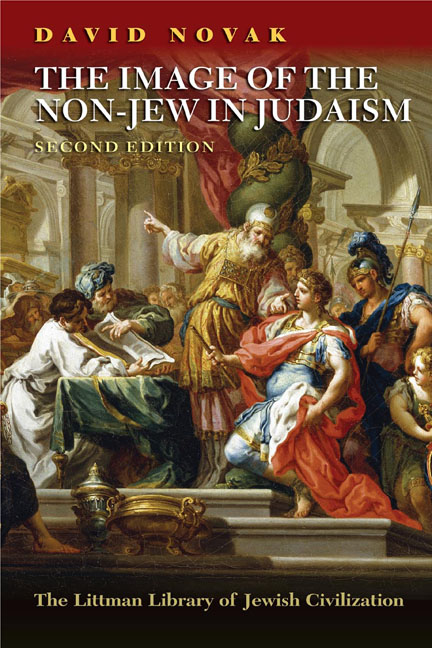Book contents
- Frontmatter
- Dedication
- Preface
- Acknowledgments
- Contents
- Chapter Summaries
- 1 The Origins of the Noahide Laws
- 2 The Law of Adjudication
- 3 The Law of Blasphemy
- 4 The Law of Idolatry
- 5 The Law of Homicide
- 6 The Law of Sexual Relations
- 7 The Law of Robbery
- 8 The Law of the Torn Limb
- 9 Aggadic Speculation
- 10 Maimonides’ Theory of Noahide Law
- 11 Albo's Theory of Noahide Law
- 12 Late Medieval Developments
- 13 Moses Mendelssohn and his School
- 14 Hermann Cohen and the Jewish Neo-Kantians
- 15 Conclusion
- Afterword
- List of Abbreviations
- Notes
- Bibliography
- Index
14 - Hermann Cohen and the Jewish Neo-Kantians
- Frontmatter
- Dedication
- Preface
- Acknowledgments
- Contents
- Chapter Summaries
- 1 The Origins of the Noahide Laws
- 2 The Law of Adjudication
- 3 The Law of Blasphemy
- 4 The Law of Idolatry
- 5 The Law of Homicide
- 6 The Law of Sexual Relations
- 7 The Law of Robbery
- 8 The Law of the Torn Limb
- 9 Aggadic Speculation
- 10 Maimonides’ Theory of Noahide Law
- 11 Albo's Theory of Noahide Law
- 12 Late Medieval Developments
- 13 Moses Mendelssohn and his School
- 14 Hermann Cohen and the Jewish Neo-Kantians
- 15 Conclusion
- Afterword
- List of Abbreviations
- Notes
- Bibliography
- Index
Summary
Introduction
As we saw in the preceding chapter, Moses Mendelssohn's interpretation of Noahide law was revolutionary in the history of Judaism, as he constituted Noahide law as philosophically prior to the more historically contingent Mosaic law. The medieval rationalists, on the other hand, always considered Noahide law to be a prelude to the fully revealed Mosaic law, the latter being clearly superior to the former. Aside from the question of whether or not this traditional doctrine can be reinterpreted as Mendelssohn did and still not contradict its sources, his reinterpretation presented two philosophical problems: (1) By reducing Judaism to a particularistic phenomenon, at best a transitional entity standing between unenlightened parochialism behind it and wholly enlightened humanity ahead of it, does this not make a philosophy of Judaism impossible? Mendelssohn would have had to answer affirmatively inasmuch as Judaism for him is devoid of what would be for him philosophically relevant content. (2) If this is the case, then, as philosophy (and culture in general) advances along universal lines, does not particularistic Judaism necessarily recede into obscurity, or as the Talmud characterized a similar approach, “the Torah is placed folded in a corner and whoever is interested will come and study it”? By situating philosophy and Judaism in absolute separation, Mendelssohn made the development of Judaism, at least in a rationally selfconscious way, almost impossible. By making it philosophically peripheral, he offered little to make an integration of the universal and particular possible within Judaism. As such he laid the groundwork, however much he did not intend to so, for an inevitable choice between particularistic old Judaism, or the new universalistic European secular civilization. Mendelssohn's reinterpretation of the Noahide laws established the idea, accepted by many later Jewish intellectuals, that integration between universal philosophy and Jewish traditionwas an impossibility.
These problems were inherited by the most systematic philosopher of modern Judaism, Hermann Cohen (1842–1918). He was faced with three alternatives: one, return to the medieval position that regarded revelation as the inner core of Judaism; (2) continue the nineteenth-century tradition of considering Judaism largely obsolete, needing only a proper burial; and (3) try to correlate philosophy and Judaism in such a way that each required the other for its fulfillment. Cohen, committed to the historical development of Judaism, settled on the third option.
- Type
- Chapter
- Information
- The Image of the Non-Jew in JudaismThe Idea of Noahide Law, pp. 213 - 224Publisher: Liverpool University PressPrint publication year: 2011

